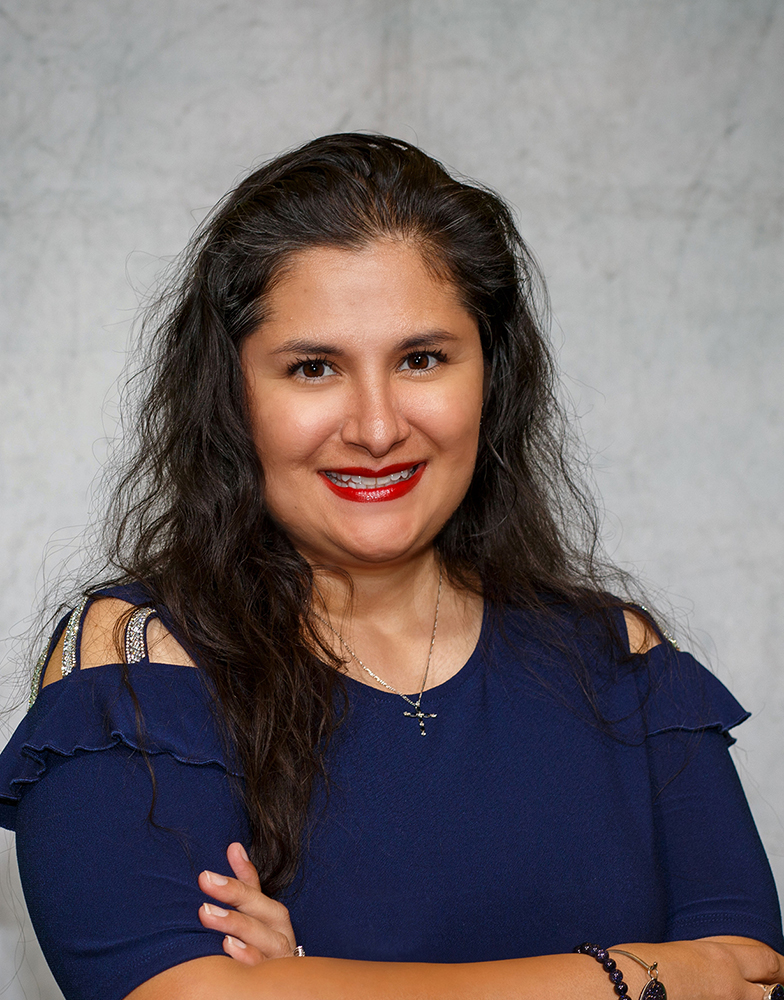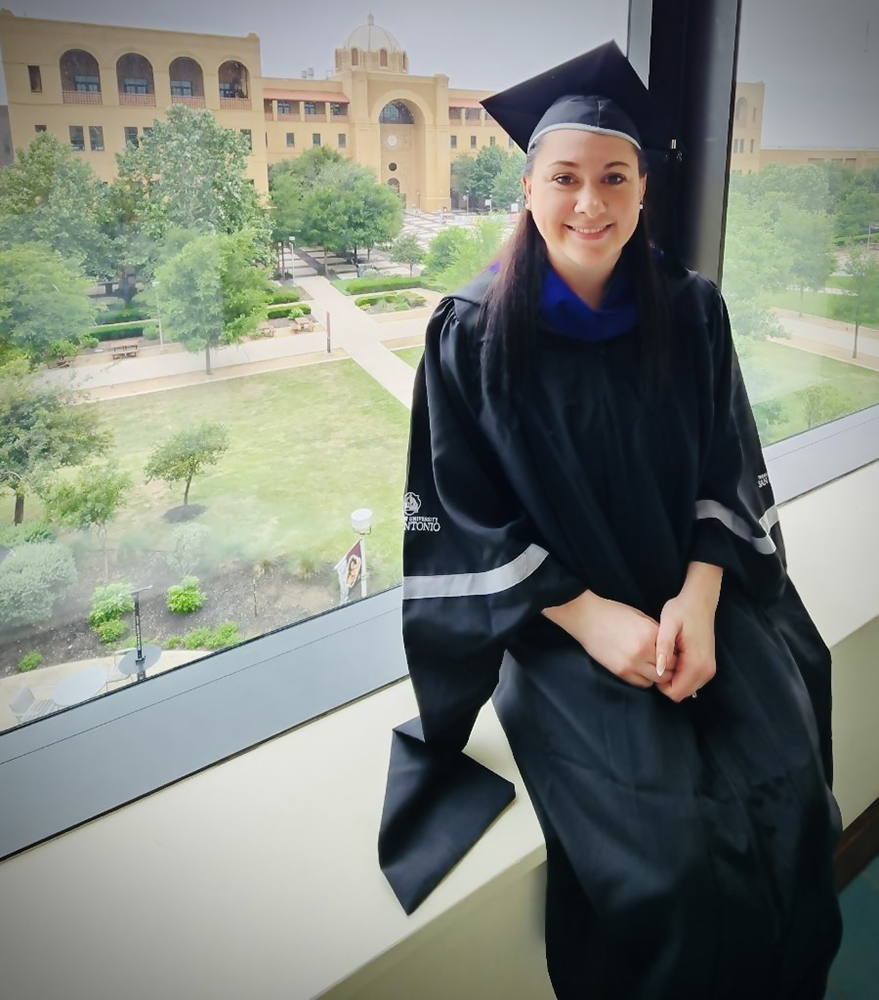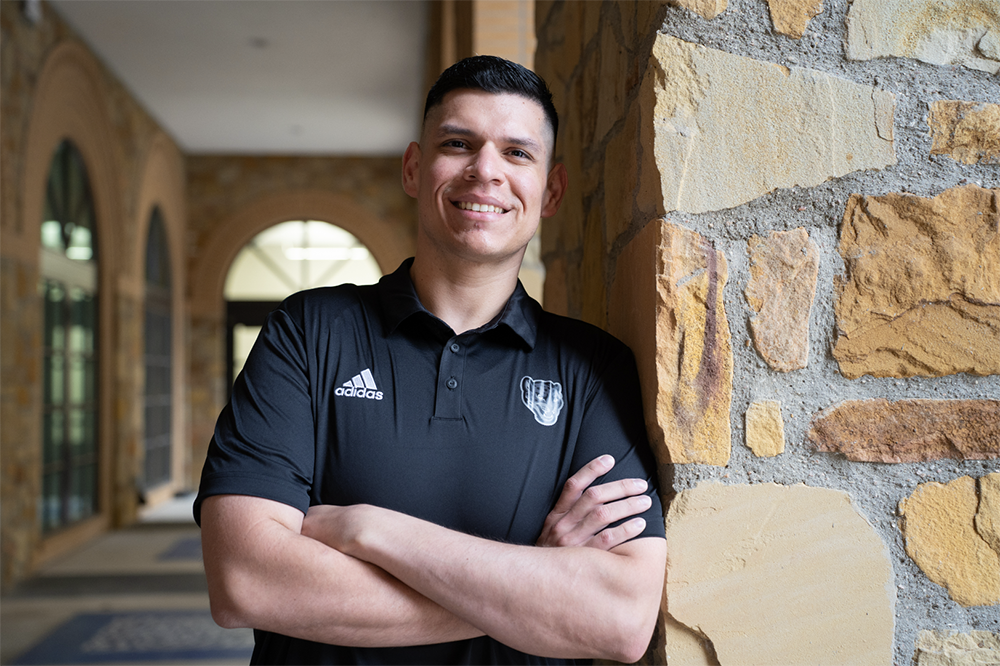The University’s first cohort of Applied Behavioral Analysis students graduates in May.
Hallie Janysek Fonseca launched her career teaching pre-kindergarten and kindergarten. It was a rewarding first job but also a bit of a wake-up call, as many of the kids struggled with behavioral and cognitive issues.
“It was sad because they deserved the best care possible and I just didn’t have the expertise to do it,” she said.
Fonseca said the experience made her want to develop the skills to “have a meaningful impact.” It’s a goal that ultimately led her to A&M-San Antonio, where, during the May 13 commencement ceremony, she will be one of the first eight students to graduate with a master’s degree from the University’s Applied Behavioral Analysis (ABA) program.
“I’m very excited,” Fonseca said. “The program’s been really great.”
A&M-San Antonio started the ABA program in 2022, beginning first with graduate-level courses. The first cohort of undergraduate students to complete the program will graduate in 2025, said Dr. Berenice de la Cruz, an assistant professor and inaugural coordinator of the ABA program.
Graduate students can choose from a concentration in autism spectrum disorder or special education. ABA students benefit from partnerships with area school districts and clinics, as well as the University’s Institute for Autism and Related Disorders, which focuses on developing assessment methods, educational strategies, behavioral interventions, and transition services for individuals with autism and related disorders.
The University created the program to help train those who work with individuals diagnosed with autism or who have other behavioral needs.
“We’re starting with autism and special education because that is our greatest need,” de la Cruz said. “Behavioral analysis is how we help people make meaningful changes in their lives.”
Fonseca is using her newly acquired skills at Action Behavior Centers, which provides ABA therapy designed to help children with autism achieve a better quality of life. She said she runs one-on-one sessions with her clients each week, which gives her the opportunity to write treatment and behavioral intervention plans using functional behavior assessments.
Fonseca said Action Behavior Center has offered her a full-time position as a behavior analyst once she passes her state board exam.
De la Cruz said Fonseca was a leader in the program, and her work experience in the field gave her an edge.
“I could see that things really clicked for her differently,” de la Cruz said.
Fonseca said she had a lot of support during her time at A&M-San Antonio, especially from de la Cruz.
 Dr. Berenice de la Cruz Dr. Berenice de la Cruz |
 Hallie Janysek Fonseca Hallie Janysek Fonseca |
 Miguel Cantu Miguel Cantu |
“Dr. de la Cruz has been extremely helpful throughout the ABA program,” said Fonseca. “As the first ABA cohort, we were fortunate to have her as our professor. She made the program interactive and engaging, and the assignments she gave us are relevant to the work we will be doing. The students in my cohort were also amazing.
Miguel Cantu, a special education teacher and behavior interventionist with Harlandale ISD, is also set to graduate with his ABA master’s degree in May.
Cantu explains that he started working as a substitute teacher while completing his undergraduate degree and enjoyed it so much, he decided to pursue it as a career.
“I love teaching special ed, mostly because it’s more individualized for the students, and I love a challenge, especially a behavioral challenge. It keeps me on my toes,” Cantu said, who started the ABA Student Organization and served as its first president.
It was through A&M-San Antonio’s partnership with Harlandale that Cantu heard about the ABA program. He said de la Cruz was instrumental in his success and taught him and his fellow students critical lessons, including how to lobby for resources at the Texas Capital.
Cantu said the University’s online ABA courses have been very convenient for his schedule, and the program has helped him with his students. He plans to pursue a Ph.D. after he graduates.
“It’s so interesting from an ABA standpoint, looking at the data and seeing how one small behavioral change can make such a big difference,” he said. “The program really taught me that any major problem can be solved with patience and dedication.”